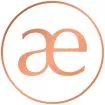The owner of an EU trademark has a five-year grace period where there is no requirement to document commercial use of the registration. After those five years, the registration may be vulnerable to cancellation due to non-use.
An example of the importance of being able to prove genuine use of a registered EU trademark within the EU is seen in the opposition matter between McDonalds and the Irish restaurant chain Supermac's.
In 2017 McDonalds filed an opposition in the EU against Supermac's applications for the EU trademark SUPERMAC'S based on their own EU-trademark BIG MAC, arguing that the trademarks were confusingly similar. In return Supermac's filed for revocation of McDonald's inarguably internationally well-known trademark BIG MAC based on lack of genuine use of the trademark within the EU1.
Despite BIG MAC being such a well-known trademark, the evidence filed by McDonalds in the revocation matter (affidavits claiming significant sales in the EU, brochures and printouts of advertising posters and packaging, screen prints from websites and a printout from Wikipedia) was not considered sufficient to prove genuine use of the trademark within the EU.
Unsurprisingly, McDonalds filed an appeal with the EUIPO Board of Appeal2. For the Board, McDonalds filed several hundred new pieces of evidence to prove their genuine use of BIG MAC in the EU, this time including costumer surveys, receipts from cash registers across the EU, a series of media articles on the Big Mac, as well as a multitude of marketing material and product packaging, all containing the trademark.
Luckily for McDonalds, the Board of Appeal found that the presented evidence in the appeal case was enough to prove genuine use in the EU, and their BIG MAC trademark was not revoked for the relevant goods.
What does this mean for your business?
The ruling clearly shows that no matter the size and notoriety of your business and brand, it is important that you are able to prove genuine use of your EU trademark if you wish to maintain and enforce your registration.
To achieve this, it is important that you use your EU trademark and that you can prove this. This could for example be in your marketing materials, on packaging, on invoices or receipts.
If you have any questions regarding the requirement of use of a trademark in the EU – or elsewhere in the world – feel free to contact one of our trademark experts and ask, as we will happily guide you on strategies for applying, maintaining, and enforcing your trademarks both within and outside of the EU.
Footnotes
1. Decision on Cancellation No 14 788 C
2. Decision of the Fourth Board of Appeal in case R 543/2019-4
The content of this article is intended to provide a general guide to the subject matter. Specialist advice should be sought about your specific circumstances.


